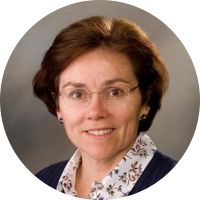Divine Abundance: Leisure, the Basis of Academic Culture
Mots-clés :
Theology, EthicsRésumé
This book addresses a key problem facing most colleges and universities today: the relegation of faith to just another sphere of the institution. While colleges might welcome campus ministries, service opportunities or various liturgical events, these realities typically have little to do with the academic disciplines or the pursuit of knowledge. The free pursuit of truth wherever it may be found, it is assumed, ought not be fettered by the constraints of faith or dogma. What, after all, does the eucharist have to do with biology? Or what difference could the incarnation possibly make for the study of psychology or sociology? The former are beliefs, the latter forms of knowledge.
I respond to such questions by placing the question mark at a more foundational level. The key challenge facing the academy today is not « whether faith? » but « which faith? ». As Edward Farley observes, the usual criticisms of education « do not amount to reform [because] their focus is more on the symptoms than on the disease itself ». The disease, I argue, is a malaise of long standing within the modern academy. The contemporary university resembles nothing so much as a landscape strewn with the parts of some machine with no design by which the whole might be understood. A mechanistic ontology fragments academic being even as it prevents the academy from seeing and, even more, enjoying its telos or end. The fact that the academy no longer sees questions of purpose as central to its whole being but relegates these to the private or personal sphere is itself a symptom of a malaise so prevalent that it seems simply normal.
I diagnose this disease by describing how distorted stories and a warped ontology fuel the modern academic imagination. My thesis is that leisure, rightly understood, is necessary for the academy to flourish. Such leisure both acknowledges and embodies the fact that communion is intrinsic to being. This is no mere pious sentiment, but a description of the logic of all creation. All being is to some degree oriented toward a Divine plentitude. This logic stands in radical contrast to a mechanistic understanding of being that is intrinsically neutral, an assumption that leads inevitably to fragmentation among the academic disciplines as well as to a divorce between church and academy. The turn to leisure as both a practice and a way of being provides a different understanding of the academy, one that reconfigures both space and time. The academy rather names both a quest and a way of being; it is a search for Wisdom even as it calls for becoming a people capable of receiving the gift of wisdom in all its rich variety. Academic being before the mysterious presence of God requires not simply a technique or technological fix. It rather calls for the kind of habits and vision that enable us to see why the love of learning and desire for God are one and the same.



